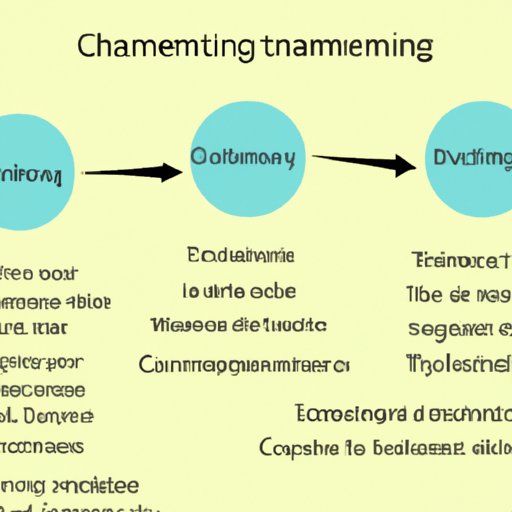Introduction
Undergoing chemotherapy can be an incredibly daunting experience. From the physical side effects to the emotional toll, navigating life after cancer treatment can be difficult and overwhelming. One of the most common questions asked by those who have undergone chemotherapy is “when can I return to work?” This article will explore the physical and mental impact of returning to work after chemotherapy, as well as provide tips on how to make the transition back to work as smooth as possible.

Exploring the Physical and Mental Impact of Returning to Work After Chemotherapy
When considering when to return to work after chemotherapy, it is important to understand the potential physical and emotional effects of the treatment. Chemotherapy can cause a variety of side effects, such as nausea, fatigue, hair loss, and more. It is important to take these potential side effects into consideration when determining when to return to work. Additionally, chemotherapy can also take an emotional toll, as it can lead to feelings of depression, anxiety, or fear. It is important to address any emotional challenges associated with returning to work before attempting to do so.

How to Prepare for Returning to Work After Chemotherapy
When preparing to return to work after chemotherapy, it is important to identify supportive resources that can help you manage the process. This may include talking to your doctor about any necessary accommodations or modifications to your work schedule. Additionally, it is important to plan ahead for any changes in your work environment, such as requesting lighter duties or taking additional breaks throughout the day. Planning ahead can help ensure that you are able to handle the physical and emotional demands of returning to work.
Strategies for Managing Work Life Balance After Chemotherapy
It is also important to develop strategies for managing your work-life balance after chemotherapy. Setting boundaries to reduce stress and prioritize self-care can help prevent burnout and keep you healthy. This may include setting limits on working hours, taking regular breaks, and getting adequate sleep. Additionally, finding ways to stay engaged in your job, such as participating in team activities or attending meetings, can help keep you motivated and connected to your coworkers.
What to Expect When Returning to Work After Chemotherapy
When returning to work after chemotherapy, it is important to be mindful of any physical changes that may have occurred during treatment. These may include fatigue, muscle weakness, or difficulty concentrating. It is important to adjust your workload accordingly, and to not push yourself too hard. Additionally, it is important to be aware of any emotional changes, such as anxiety or depression. If these feelings become overwhelming, it is important to seek professional help.

Tips for a Smooth Transition Back to Work After Chemotherapy
Finally, there are several tips to help make the transition back to work after chemotherapy as smooth as possible. Communicating openly with employers and coworkers about any physical or emotional changes can help create an understanding and supportive work environment. Additionally, finding ways to stay engaged in your job, such as taking on new projects or volunteering for extra tasks, can help keep you motivated and connected to your coworkers. Finally, it is important to remember to prioritize self-care and take time for yourself to rest and recharge.
Conclusion
Returning to work after chemotherapy can be an overwhelming and challenging experience. It is important to consider the physical and emotional impact of the treatment, as well as prepare for any changes in your work environment. Additionally, it is important to develop strategies for managing your work-life balance and communicate openly with employers and coworkers. By following these tips, you can make the transition back to work after chemotherapy as smooth as possible.
(Note: Is this article not meeting your expectations? Do you have knowledge or insights to share? Unlock new opportunities and expand your reach by joining our authors team. Click Registration to join us and share your expertise with our readers.)
